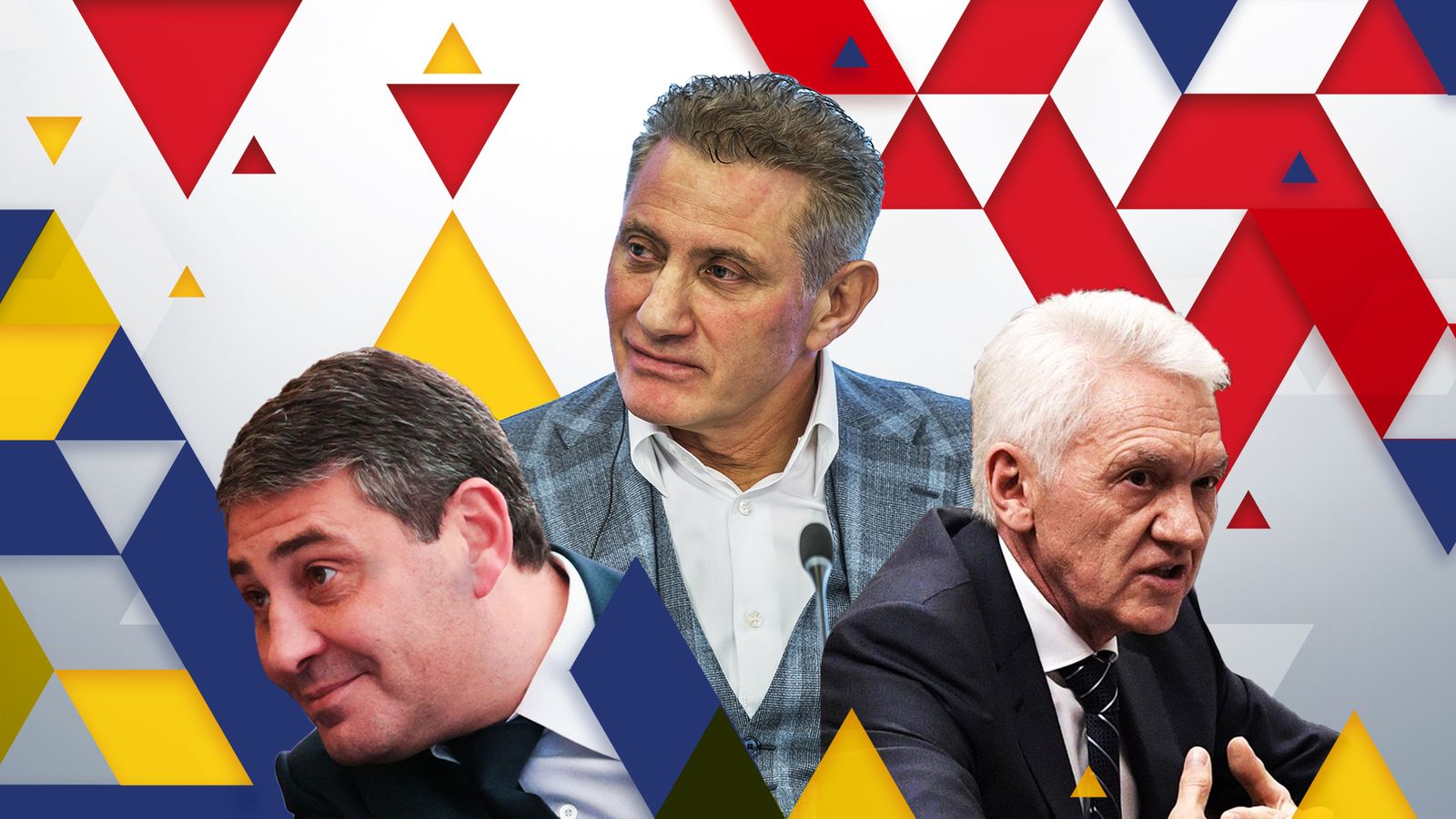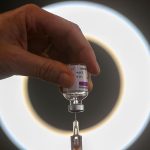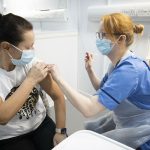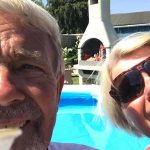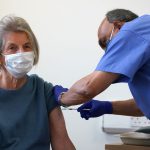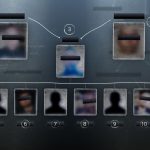Boris Johnson has announced sanctions against three Russian oligarchs as the UK takes action against Vladimir Putin’s “cronies” in response to the “renewed invasion” of Ukraine.
The prime minister declared a “first barrage” of punitive measures were being taken against Gennady Timchenko, Boris Rotenberg and his nephew Igor Rotenberg – who he described as “three very high net worth individuals”.
The trio’s assets in this country will be frozen – with anyone in Britain banned from having any dealings with them – and they face a UK travel ban, Mr Johnson said.
So who are the three oligarchs? Sky News explains.
Gennady Timchenko
Mr Timchenko is a billionaire ally of Mr Putin and one of the most powerful people in Russia.
According to Forbes, the 69-year-old is worth $23.5bn (£17.3bn) and has stakes in various Russian businesses, including gas company Novatek and petrochemical producer Sibur Holding.
Boris Johnson’s sanctions ‘barrage’ will have little impact on Vladmir Putin’s war machine
Ukraine crisis: Boris Johnson suggests stripping Russia of hosting UEFA Champions League final
Ukraine-Russia crisis: What will happen if Vladimir Putin chooses all-out war?
He owns the private investment group Volga, which specialises in investments in energy, transport and infrastructure assets.
He is also chairman of the Russian national hockey league and president of the SKA Saint-Petersburg Hockey Club.
Mr Timchenko and Mr Putin have reportedly been friends since at least the early 1990s when the businessman was a St Petersburg oil trader and the now-Russian president was a rising politician.
Ukraine live updates: UK imposing ‘immediate’ sanctions on Russia as ‘invasion begins’
Mr Timchenko went on to co-found Gunvor, a Swiss-based trading house that exports billions of dollars-worth of Russian oil.
He is a major shareholder in Rossiya, one of the five Russian banks that have been sanctioned by Mr Johnson.
Rossiya is stakeholder in National Media Group which supported the destabilisation of Ukraine after Russia’s 2014 annexation of Crimea, the UK government says.
It adds that Mr Timchenko has been involved in action that “undermines or threatens the territorial integrity, sovereignty or independence of Ukraine”.
The US previously announced sanctions against Mr Timchenko in 2014.
Boris Rotenberg
Mr Rotenberg is a childhood friend of Putin and a co-owner of SMP Bank, along with his brother Arkady.
He is a former judo sparring partner of the Russian president and the pair often play ice-hockey together.
According to Forbes, Mr Rotenberg is worth $1.2bn (£886m).
The UK government describes Mr Rotenberg as “a prominent Russian businessman with close personal ties” to Mr Putin.
It says he has benefitted from supporting the Russian government through his role at SMP Bank.
Read more: Can Russia withstand more sanctions?
Please use Chrome browser for a more accessible video player
The Rotenberg brothers were hit by US sanctions and had assets frozen in 2014 because of their close ties to Mr Putin.
The US Treasury claimed that the Russian presidents had awarded the Rotenbergs billions of dollars in contracts with gas giant Gazprom and for the Sochi Olympics.
Boris Rotenberg’s son Roman was recently named head coach of leading ice-hockey team SKA St Petersburg despite never having played or managed professionally.
His other son, also named Boris, played as a defender for Dynamo Moscow football club from 2011-2016, sparking allegations that he was in the team only because his father was chairman.
Igor Rotenberg
Igor Rotenberg is the son of billionaire Arkady Rotenberg, a close friend of Mr Putin.
The 48-year-old controls drilling company Gazprom Bureniye and is worth $1.1bn, according to Forbes.
After the US imposed sanctions against his father in 2014, Mr Rotenberg bought his father’s stakes in some assets.
The UK government says Mr Rotenberg is “a prominent Russian businessmen with close familial ties to President Putin”.
He is chairman of the board of directors of National Telematic Systems and a shareholder in RT-Invest Transport System, which are “of strategic significance to the government of Russia”, it adds.
